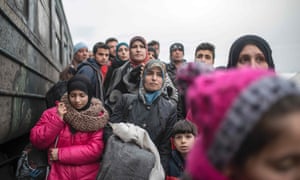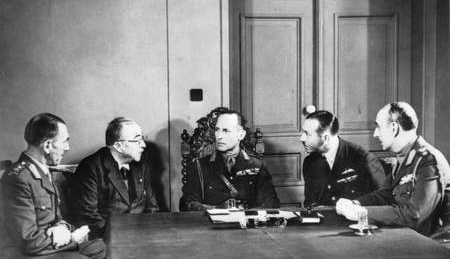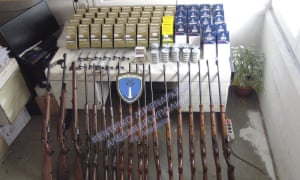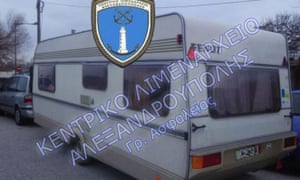
15:21 18.02.2016
Sputnik news
On February 15, six Turkish fighter jets and a Navy transport plane violated Greek airspace over island territories in the eastern Aegean Sea nearly two dozen times. Commenting on the latest violation, Russian military analyst Alexei Kupriyanov decided to take a look back at the recent history of the decades-long conflict between Athens and Ankara.
The reported airspace violations earlier this week took place between the islands of Chios and Samos in the eastern Aegean, and between Lemnos and Lesbos, in the Sea's northeast. According to Greece's General Staff, Turkish aircraft violated Greek airspace 22 times in a period of 24 hours. Two of the Turkish planes were reported to be armed, and Greek military officials confirmed that two "virtual dogfights" took place between Turkish and Greek aircraft after Greek patrols intercepted the violators.
The incident was far from the first time that Turkish aircraft violated Greek airspace, with Greek media earlier calculating that in 2015 alone, Turkey had violated Greek airspace 1,375 times, with the transgressing aircraft armed and prepared for combat in 135 of those incidents.

Turkey Violates Greek Airspace 22 Times Within 24 Hours
Turkey, it bears keeping in mind, has refused to sign the UN Convention on the Law of the Sea of 1982, which enshrines a 12 nautical mile (22 km) standard of territorial waters surrounding island territories. In 1995, Ankara threatened that an attempt by Athens to make good on the 12 nautical mile limit prescribed by the UN Treaty would constitute a cacus belli. Greece, for its part, condemned the Turkish ultimatum as a violation of the UN Charter.
Commenting on the history of the present conflict between the two countries, Lenta.ru journalist and military analyst Alexei Kupriyanov recalled that the current dispute in the Aegean is part of a struggle stretching back centuries, from the Ottoman capture of Constantinople in 1453, to centuries of Ottoman Turkish occupation of Greece, to multiple wars in the 19th and 20th centuries, to Turkey's invasion and occupation of northern Cyprus in 1974.
"Political disputes," the journalist recalled, "have recently been exacerbated by economic disagreements. After oil was found on the Aegean Sea's continental shelf, questions over the ownership of uninhabited islands took on extraordinary importance. Both Greece and Turkey issued permits to their companies to extract oil in disputed waters, sending research vessels to the area, and accusing one another of trying to gain control over the lion's share of the oil-bearing shelf."
"And neither NATO, nor the International Court of Arbitration, nor the UN Security Council, have been able to persuade Athens and Ankara to reach a compromise." So far, the journalist notes, "the conflict has never reached a hot phase: during the most critical moments, NATO's leadership intervened." Nevertheless, over the past twenty years, the threat of war has hung over the Aegean like the Sword of Damocles.
"Simulated air battles, or dogfights – have become the main way for the two countries to demonstrate their territorial claims," Kupriyanov recalled. "Greek Air Force F-16s and Mirages have intercepted Turkish F-16s and engaged in dangerous maneuvers, trying to get on the tail of the enemy to expel him from the disputed area. At times pilots would keep each other in each other's sights for minutes at a time. The 'contest' of nerves is made particularly acute by the fact that [often], the planes on both sides are fully armed."
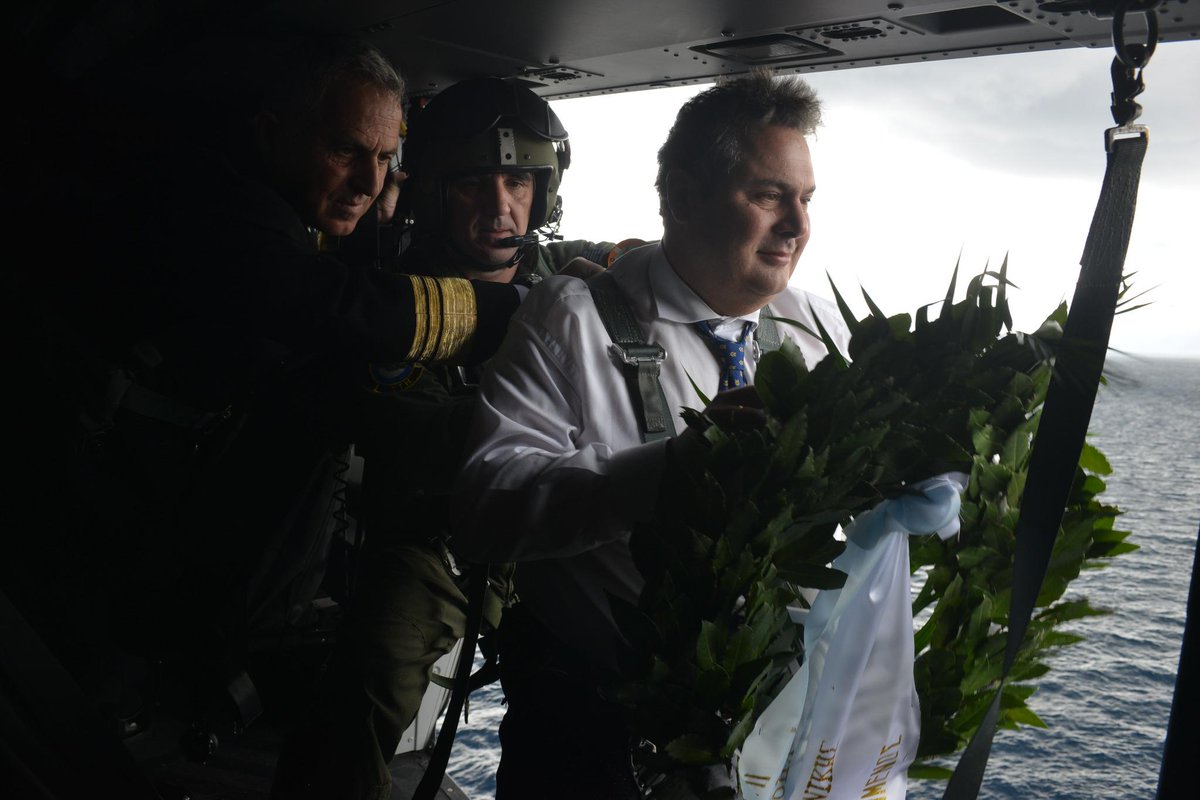
"For the most part, the dogfights have taken place over the islands of Lesbos, Chios, Samos and the Dodecanese archipelago. Often, tourists who spend their holidays in the Greek resorts could simultaneously 'enjoy' simulated air battles taking place over their heads."
"Mostly," the military analyst explained, "Turkish pilots have been the ones to violate Greek airspace, but at times the Greeks too have flown into Turkish airspace, usually in the course of turning around after kicking the Turks out. Neither Athens nor Ankara have recognized each other's airspace violations, even though after each incident the General Staff of the affected party traditionally releases a statement publically censuring, angrily denouncing and strongly resenting [the violation]."
"At times, such simulated air battles have led to tragedy. On June 18, 1992, a Greek Mirage engaged in a dogfight with two Turkish F-16s at an extremely low altitude over the island of Agios Efstratios crashed, resulting in the death of its pilot."
NATO Members on the Brink of War Over a Pair of Uninhabited Rocks
Turkey bans Greek PM Tsipras' plane from entering airspace
Unfriendly Skies: Turkey Prevents Greek PM Tsipras From Entering Airspace
"For a long time," Kupriyanov recalls, "the international community remained blissfully ignorant of the Greco-Turkish dispute: few were interested in the obscure maneuvers over the Aegean Sea and the recriminations of the two countries' general staffs. But everything changed in 1996, when the two NATO member countries found themselves on the brink of war."
"The crisis was caused by a navigational error by the captain of the Turkish cargo ship Figen Akat, which saw the ship run ashore on one of the two islands of Imia, drawn on Turkish maps under the name Kardak. These are just two uninhabited pieces of land jutting out of the sea, the Greek sovereignty over which no one had previously disputed. After running ashore, the captain of the cargo ship refused Greek aid, claiming that he was in Turkish territorial waters, and turning to Turkish emergency services for help."
"After four days, Turkey officially declared that Kardak was its territory, which followed the exchange of angry diplomatic notes. The Greek press saw the unfolding of a patriotic campaign, [which prompted] the mayor of the neighboring island of Kalymnos, accompanied by three other Greek citizens, including a priest, to raise a Greek flag on the island on January 26, 1996."

"But it did not fly there long. The next day, Turkish journalists from the Hurriyet daily newspaper arrived, lowering the Greek flag and raising a Turkish one. The entire ceremony was broadcast on Turkish television, causing a surge of patriotism among Turks. A day later, a group of Greek commandos secretly landed on the island, again raising the country's flag."
"The leaders of both countries, Costas Simitis and Tansu Ciller, exchanged sharp words. Both sides quickly pulled warships up to the disputed islands. On January 30, after a Turkish frigate violated Greek territorial waters and aimed its weapons at a Greek gunboat, and a Turkish Navy helicopter flew at low altitude over the disputed islands, the Greek Navy left its harbors at Piraeus and began to deploy across the Aegean Sea."
Russian PM: Turkey 'Set Up' NATO by Downing Russian Jet
"Early on the morning of January 31, the Greek Navy frigate Navarino launched a reconnaissance helicopter with three pilots on board. Flying over western Imia, the pilots reported that they had seen armed men raising the Turkish flag (they turned out to be Turkish commandos who had landed on the island at night). After that, communication with the helicopter was lost."
"The nerves of sailors on both sides were on edge," Kupriyanov notes. "Politicians in Ankara and Athens realized that they had come to the edge of the precipice, with both sides deciding not to make the incident public: if the press were to find out, the situation could spiral out of control."

As a result, the United States was forced to intervene. "The White House had realized that pushed just a little more, the two NATO members providing cover for the alliance's southern flank would start a war against one another. The settlement plan was worked out with the participation of President Bill Clinton…In the end, the two countries agreed to withdraw troops and to restore the status quo. However, neither side has given up its claim to the disputed islands."
"To this day, many in Greece are convinced that their helicopter was shot down by Turkish special forces, and that the official version – that the chopper crashed due to a technical fault, was conceived in retrospect to calm the public. The helicopter's pilots are considered national heroes by the Greek right."
"In January 2016, Panos Kammenos, Greece's new defense minister and the leader of the right-wing Independent Greeks party, visited the islands to honor the memory of the pilots. As he laid flowers over their gravestone, a pair of Turkish jet fighters roared overhead, demonstrating that the dispute over the islands continues."
Cover-ups in the Secret War Over the Aegean
The journalist suggests that the real or perceived cover-up regarding casualties "has become a kind of a hallmark of the Greco-Turkish crisis in the Aegean."
"Perhaps the best example was the incident which took place on October 8, 1996, eight months after the conflict over Imia. A Turkish F-16 taking off from an air base in the province of Balikesir and carrying out a training flight crashed near the island of Chios in Greek airspace. One of the pilots, Colonel Osman Chilekli, managed to eject. He was picked up by a Greek rescue helicopter and handed over to the Turkish side. The co-pilot, Captain Nail Erdogan, was declared missing. His body was never found."
NATO Refuses to Comment on Turkey YPG Shelling, Denies Involvement in Syria
"Almost immediately, Erdogan's relatives declared that the authorities are hiding the truth, and that the plane was shot down by the Greek Air Force. The government categorically denied this claim. However, 16 years later, Colonel Chilekli, who had previously refused to speak to the media, said that his fighter was indeed shot down by a Greek missile. 'This incident was a disgrace for our armed forces – this is why we kept silent for so long', the pilot said. 'Erdogan's family was told the truth in private. But in this case, as in others, many mysteries remain', he added."
Following Chilekli's revelation, Turkish authorities finally broke the conspiracy of silence, with current defense minister Ismet Yilmaz confirming in 2012 that the Turkish F-16 had been hit by a Greek Mirage 2000 by a R.550 Magic II air-to-air missile.
"In the 20 years since the incident, Greek and Turkish journalists established a variety of theories about Captain Erdogan's death…But there are still many uncertainties in the case. The Turks claim that the F-16 was not armed, and that consequently, its destruction was cold-blooded murder. The Greeks say that the aircraft was armed, that it was accompanied by another plane, that it got into a dogfight, and that the Greek pilot pressed the trigger accidentally."
Following the October 8, 1996 incident, Greek and Turkish aircraft often flew on patrols without missiles on board for many years. "However, as subsequent events would show, this would not help matters."
Turkish Fighter Jets Violate Greek Airspace Over Aegean Sea… Again
"On May 23, 2006, two Turkish F-16s and an F-4 reconnaissance aircraft entered neutral territory over islands in the southern Aegean at an altitude of 8,200 meters, without giving prior notice to Greek air traffic controllers. Two Greek F-16s were sent to intercept the Turks over the island of Karpathos. A traditional 'dogfight' ensued, ending in tragedy: the Greek and Turkish planes collided," resulting in the ejection of the Turkish pilot, and the death of Greek pilot Costas Iliakis.
"It's not exactly clear what happened in the skies over Karpathos," the journalist recalled. "Greek nationalists claim that Iliakis rammed the Turkish plane on purpose, eliminating the aggressor at the cost of his own life. Leftist journalists assume it to have been an accident. In any case, after the incident the planes of the Greek and Turkish Air Force began to fly armed again."
"In the coming years, the undeclared war over the Aegean would see new victims. In 2007, a Turkish pilot would crash during a training flight. In 2010, two Greek pilots would die due to an error during maneuvers at extremely close range."
Over a Thousand Violations Each Year
Turkey Fails to Provide Evidence of 'Airspace Violations' by Russian Planes
"It is no surprise," Kupriyanov noted, "that after the Turks shot down a Russian bomber [over Syria], in the course of his meeting with Russian Foreign Minister Sergei Lavrov, Greek Foreign Minister Nikos Kotzias expressed his condolences and solidarity with Moscow. Kotzias complained about the persistent violations of Greek air space by Turkish jets. Until recently, Greek air traffic controllers recorded an average of 1,500 cases of airspace violation by Turkish aircraft [per year]."
"Such numbers shouldn't surprise anyone. For example, in July 2015, six Turkish planes entered Greece's airspace. Before four Greek fighters could get on their tail, the Turks managed to break the air boundary at least 20 times. A similar incident occurred in December of 2015 and now, recently, in February 2016."
Unfortunately, the journalist warned, "the situation is becoming more and more reminiscent of that of 1995: Daily, Greek fighters are forced to take to the skies to intercept Turkish intruders, armed. And who knows whether and when another Greek pilot's trigger finger might slip."

